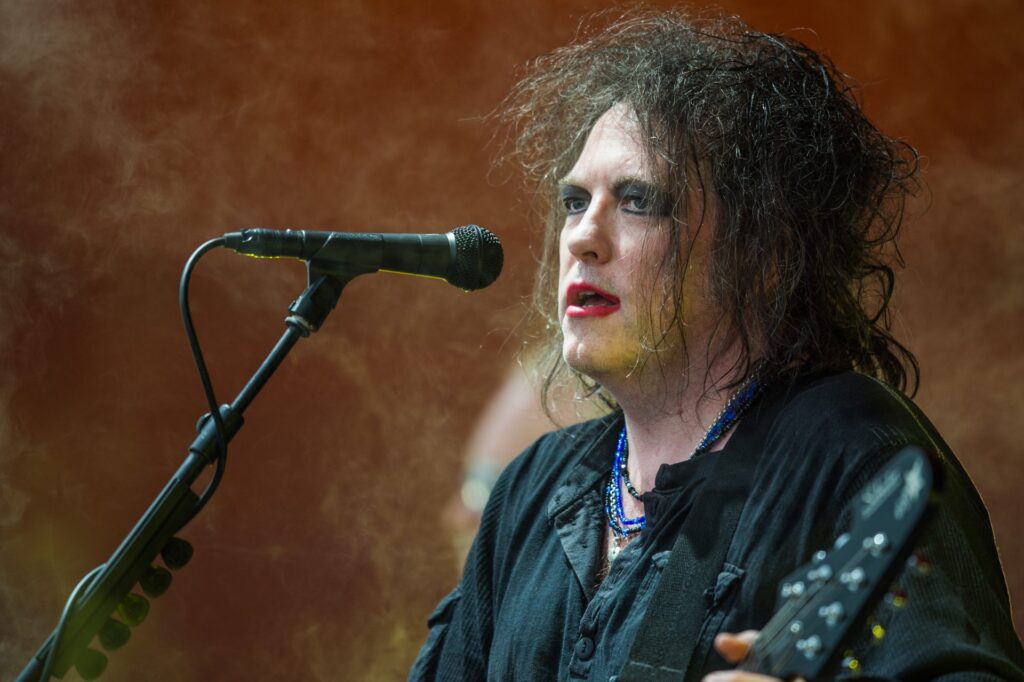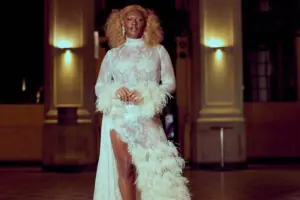 Foto: Reprodução
Foto: ReproduçãoDois clássicos da banda The Cure foram diretamente inspiradas em Franz Kafka. Saiba quais são
Em entrevista, Robert Smith, do The Cure, contou quais são as duas músicas da banda diretamente inspiradas em textos de Franz Kafka
Quando a tuberculose levou tão precocemente Franz Kafka em 1924, aos 41 anos de idade, o escritor nascido em Praga ainda não sabia de duas coisas: que seus livros ganhariam o mundo, tornando-o um dos mais influentes artistas de sua época, e que duas de suas histórias seriam diretamente usadas na letra de clássicos do The Cure, uma das bandas de rock mais influentes de sua época.
O reconhecimento da qualidade dos escritos de Kafka foi póstumo e se desdobrou como inspiração em diversas outras expressões artísticas, como o teatro, o cinema e, no caso também do Cure, a música.
Robert Smith, líder da banda, declarou em diversas entrevistas ser um grande fã de Kafka. “Eu li e reli todos os seus livros. O processo, A metamorfose, O castelo… sua influência na minha criação é imensa”, contou Smith à revista Radical Reads.
E foi nesta mesma entrevista que o líder do Cure entregou: “minha música, Letter to Elise, é diretamente inspirada em seu “Letters to Felice (Cartas a Felice, na tradução em português)”.
Oh Elise it doesn’t matter what you sayI just can’t stay here every yesterdayLike keep on acting out the sameThe way we act outEvery way to smile, forgetAnd make-believe we never neededAny more than thisAny more than thisOh Elise it doesn’t matter what you doI know I’ll never really get inside of youTo make your eyes catch fireThe way they shouldThe way the blue could pull me inIf they only would, if they only wouldAt least I’d lose this sense of sensing something elseThat hides awayFrom me and you, there’re worlds to partWith aching looks and breaking heartsAnd all the prayers your hands can makeOh I just take as much as you can throwAnd then throw it all awayOh I throw it all awayLike throwing faces at the skyLike throwing arms roundYesterday, I stood and staredWide-eyed in front of youAnd the face I saw looked backThe way I wanted toBut I just can’t hold my tears awayThe way you doElise believe I never wanted thisI thought this time I’d keep all of my promisesI thought you were the girl I always dreamed aboutBut I let the dream goAnd the promises brokeAnd the make-believe ran outSo EliseIt doesn’t matter what you sayI just can’t stay here every yesterdayLike keep on acting out the sameThe way we act outEvery way to smileForget and make-believe we never neededAny more than thisAny more than thisAnd every time I try to pick it upLike falling sandAs fast as I pick it upIt runs away through my clutching handsBut there’s nothing else I can really doThere’s nothing else I can really doThere’s nothing else I can really doAt all
Sunk deep in the nightI sink in the nightStanding alone underneath the skyI feel the chill of iceOn my faceI watch the hours go byThe hours go by,You sleepSleep in a safe bedCurled and protectedProtected from sightUnder a safe roofDeep in your houseUnaware of the changes at nightAt nightI hear the darkness breatheI sense the quiet despairListen to the silenceAt nightSomeone has to be thereSomeone has to be thereSomeone must be there



